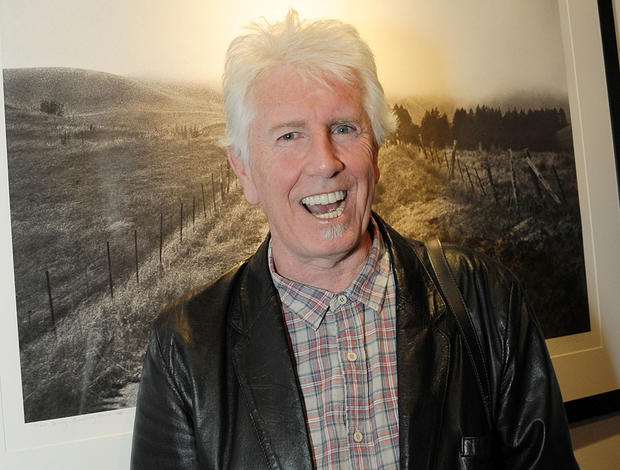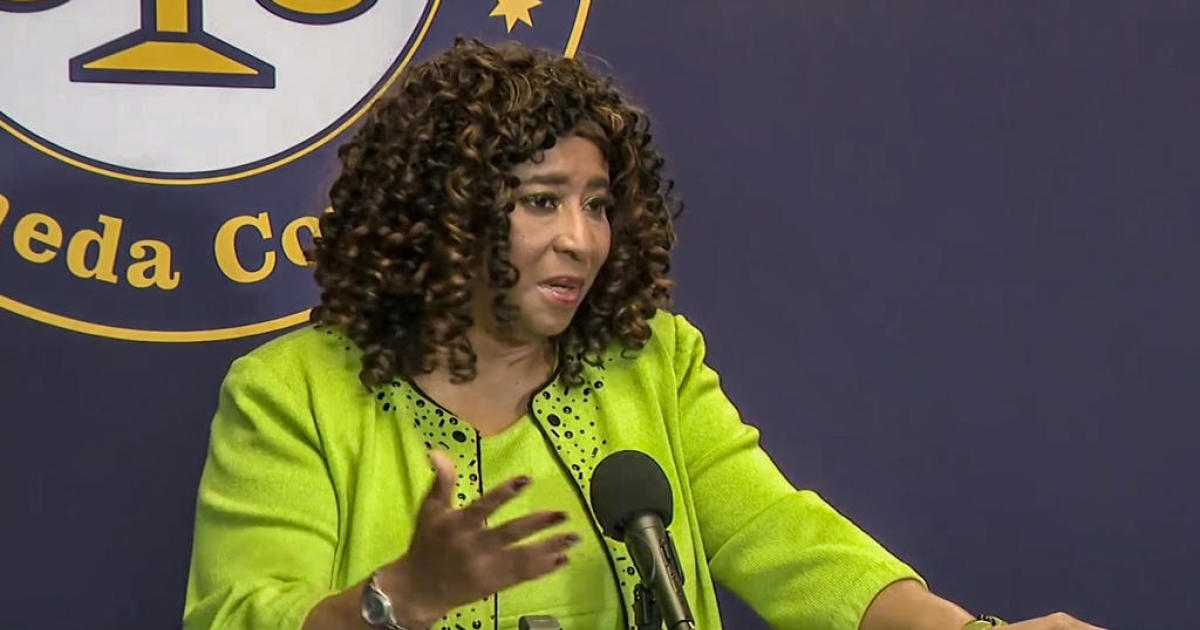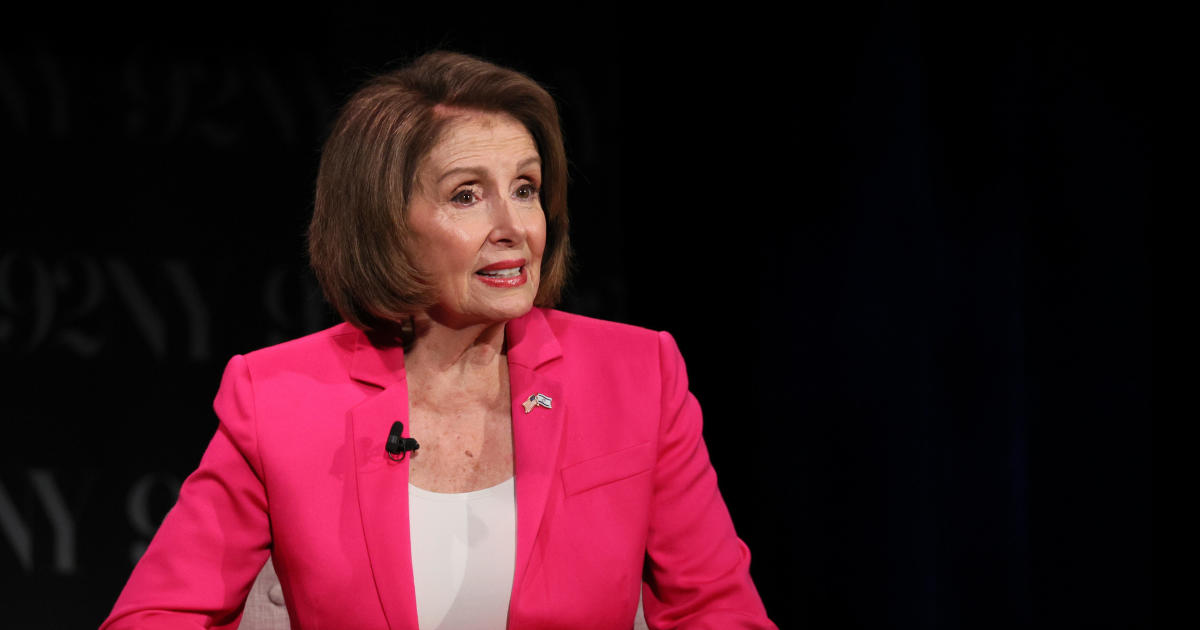Graham Nash Looks Back On A Life of 'Wild Tales'
(CBS SF/AP) - Before he and his fellow bandmates "Crosby, Stills Nash and Young" hits the stage at the Bridge School Benefit at the Shoreline Amphitheatre in October, Graham Nash sat down and recorded his memoir "wild Tales' in audio book form.
Nash is in the recording studio, having a hard time saying the words. "It was such a tumultuous smoke-ridden cocaine-driven moment that it's hard to remember everything as it went down," he reads, stumbling over the word "tumultuous" and later saying "1977" instead of "1967," an epic slip for Nash's generation.
The "moment" was Woodstock and the studio was in midtown Manhattan, where Nash recently taped the audio book of his memoir "Wild Tales." Digital technology enabled him to quickly correct his errors, but the memories will not be erased as he relives a time he still helps embody.
Few were so profoundly changed by rock `n roll and the 1960s as Nash, a child of working class, World War II-era Britain who first became a star as a grinning harmony singer for the Hollies and, just as he feared he was locked into a life of screaming teenagers and 2-minute love songs, let his hair down as part of Crosby, Stills and Nash.
His hair a full and flawless white, he looks improbably fit and trim at 71, especially for someone who by his own account smoked and snorted through much of his 20s and 30s. But he is mindful that his luck won't last forever and decided it was time to tell his story, if only for his baby granddaughter, Stella Joy.
"I wanted to make a record of what my life was about and who I was as a person," he says.
The man he became, the life he came to lead, began during a Hollies tour of the US in the mid-1960s. He was befriended by Mama Cass of the Mamas and Papas, a born mixer who sensed that the gentlemanly Nash would click with the Byrds' trouble-making David Crosby. He was soon living the American dream, late `60s style, recording a million-selling debut album with Crosby and Stephen Stills and sharing a house in Laurel Canyon with Joni Mitchell.
In his memoir, he gives his take on how Crosby, Stills and Nash first joined in song. It was 1968 and they were at Mitchell's house - "Stephen thinks we first hung together at Cass' house, and he's completely wrong," Nash says during his interview - and Crosby and Stills were working on the ballad "You Don't Have to Cry." Nash listened, asked them to run through it again, and added his high tenor to Still's husky low and Crosby's mellow middle.
"Something magical had happened, and we all knew it," Nash writes. "When you sing with two or three people and you get it right - when the whole thing becomes greater than the parts - everything kind of lifts a couple of feet off the ground. ... It was there, complete, a minute into our relationship."
They were instant royalty, crowned by their performance at Woodstock, but soon torn apart. Neil Young joined the band after the first record and began feuding with Stills, as they had done while in Buffalo Springfield. Crosby's girlfriend at the time, Christine Hinton, was killed in a car crash. Mitchell broke up with Nash, a loss clearly fresh decades later.
"How could you live with Joni Mitchell for two years and not still feel something," says Nash, married since 1977 to actress Susan Sennett. "She was this incredible combination of beauty and balls, and she'll always be a very special part of my life. Everybody knows that. My wife knows that, and that's just the way it is."
Young is the book's enigma and fatal attraction, a hard-headed genius with a well-documented reluctance to commit himself to a band, whether Buffalo Springfield or Crosby, Stills and Nash. In "Wild Tales," Nash sees his time with Young as a "long, strange trip" with a man whom he regards as having a heart with two faucets: hot and cold.
One tale from the cold side: Young's memoir, "Waging Heavy Peace," which came out in 2012.
"My ego got in the way," Nash said during the interview when asked about the book. "When he talked about his wife's dog more than he did about me and Stephen and David it pissed me off. I've made music with Neil Young for 40 years and I don't deserve a better mention than as an appendage to his dog?"
Working with him is inspiring, Nash says, at least when he actually gets to work with him.
"I love him to death. I'll make music with him for the rest of my life, but he's a very selfish man. Part of me admires the fact that he has the strength to follow his muse, but he doesn't realize that there are other people involved in this world," Nash says.
"For instance, when you tell 40 people you're going to Europe and do a massive tour at the end of June and then you decide you don't want to do it because the muse doesn't wave to you right? ... These 40 people don't know what to do because you don't feel like it? That pisses me off."
A spokesman for Young did not immediately respond to a request for comment.
Nash is tough on Crosby, too, although in a far more loving way. They are the closest of friends and have shared girlfriends (both dated Mitchell), political causes, songwriting credits and thousands of stages. But Nash also adds to Crosby's past confessions about his descent into drug addiction in the 1980s, when one of rock's great wise guys transformed into a scarred and dead-eyed monster, "filthy, always sickly, irrational, covered in sores," Nash writes.
"The only time legal ever called me was about the story I put in there about Crosby selling his Mercedes to a crack dealer and the guy OD's and Crosby breaks into the house, while the body is still warm, and stole back the sales slip (for the car)," Nash said during the interview.
"Legal wanted me to check with Crosby one more time to make sure that happened. He said, `Not only was it true, but I re-sold the car.'"
Crosby cleaned up years ago and various combinations of Crosby, Stills, Nash and Young continue to sing around the world, whether a planned CSN show this fall at London's Royal Albert Hall, or an impromptu visit in 2011 to the Occupy Wall Street protests. Nash and Crosby turned up and performed at Zuccotti Park in lower Manhattan, the crowd joining in for Nash's signature song, "Teach Your Children."
"I think I wrote music that made people think, and broke their hearts and depressed them and made them laugh," Nash says, adding that completing the book only added to his amazement at his own life. "I think I did a decent job with what I was given as a child. I'm from an incredibly poor family from the north of England. And look at me. I mean, c'mon."
(Copyright 2013 by CBS San Francisco and Associated Press. All rights reserved. This material may not be published, broadcast, rewritten or redistributed.)




